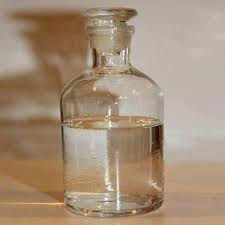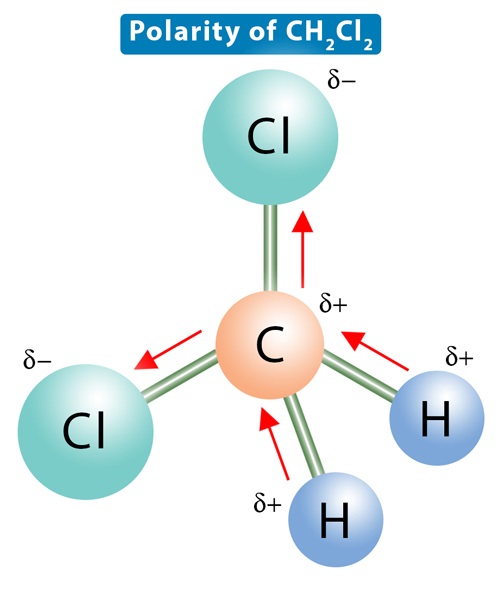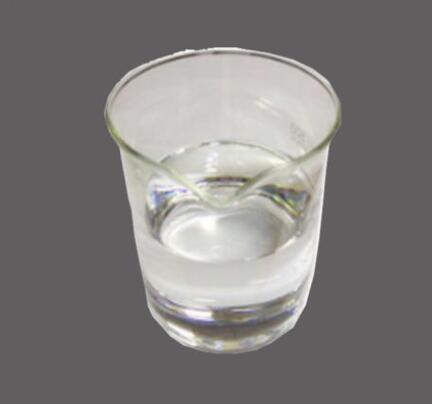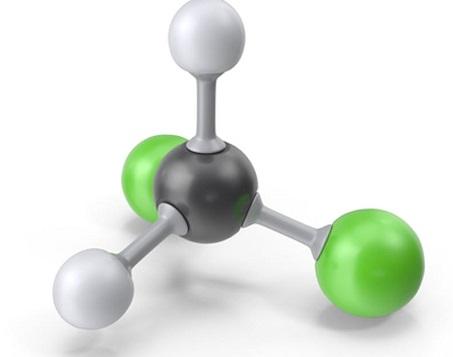Uses of Dichloromethane
Dichloromethane is a geminal organic chemical. It is also known to the scientists under the names methylene chloride or methylene dichloride. The substance may also be called refrigerant-30 freon-30, R-30, DCM, UN 1593, solmethine, narkotil, solaesthin or MDC.
It naturally occurs in oceans, volcanoes, wetlands, and macroalgae, but mainly appears as the result of industrial processes. Methylene chloride is produced in labs by treating methane or chloromethane with chlorine gas at 400 – 500 °C.
Properties and Hazards
Dichloromethane is a colorless liquid with a moderately sweet, chloroform-like aroma. It is highly volatile and emits toxic fumes when heated. The chemical has no definite flash point, though it forms flammable vapor-air mixtures. It is fully miscible with carbon tetrachloride, ethyl acetate, chloroform, alcohol, benzene, diethyl ether and hexanes. Here are some more properties of dichloromethane:
Most hazards of dichloromethane are connected with human health. The substance is extremely toxic. It can seriously irritate eyes, nose and throat, harm nervous system and even be fatal. DCM is proven to be animal carcinogen, and in case of prolonged exposure can cause cancer to humans.

Uses of Dichloromethane
Most of the dichloromethane uses are connected with its solvent properties. In household, it serves as a component of paint and varnish strippers. Besides, the DCM is often used in bathtub refinishing.
The chemical is widely applied in industry and manufacturing. It is an important extraction solvent in beverage and food production. For example, it dichloromethane is used to remove caffeine from coffee beans and tea leaves, to process spices, to create hops extract for beers, etc.
In transportation industry, the substance is present in lubricating and degreasing products, to clean metal parts and surfaces quickly and safely. Furthermore, the DCM is used in the manufacture of synthetic fibers, photographic films, inks, and many others.
Understanding the Potential Hazards of Dichloromethane
Classified as a neurotoxin, dichloromethane has been proven to cause damage to the brain and central nervous system (CNS). The Environmental Protection Agency (EPA) has classified it as a probable human carcinogen since high levels of exposure to the chemical has been proven to cause liver and lung cancer in animals.
The following health risks are associated with exposure to dichloromethane:
Inhalation - can cause coughing, wheezing and/or shortness of breath. Higher levels of dichloromethane inhalation can lead to headache, mental confusion, nausea, vomiting, dizziness and fatigue.
Skin Exposure - Redness and irritation may occur if skin comes in contact with liquid dichloromethane and, if it remains on the skin for an extended period of time, it may lead to skin burns.
Eye Exposure - Contact with eyes can cause severe irritation and possibly chemical burns to the eyes.
Safety Precautions When Handling Dichloromethane
When handling dichloromethane in the workplace, use the following safety precautions:
Wear protective clothing. Footwear should cover the entire foot.
Always wear PPE such as chemical splash goggles and safety gloves.
Work in a well-ventilated area (preferably in an environment with a fume extraction system).
What to Do When Exposed to Dichloromethane
Here are the safety steps that need to be taken if exposure you or someone else is exposed to dichloromethane occurs:
Eye Contact
Immediately flush eyes with large amounts of water for at least 30 minutes. If applicable, remove contact lenses when flushing. Seek medical attention.
Skin Contact
Immediately remove contaminated clothing and wash skin with large amounts of soap and water. Seek medical attention if any irritation occurs.
Inhalation
Individual should be removed from exposure area and immediately moved to an area with fresh air. Seek medical attention immediately if any difficulty breathing occurs.
Related articles And Qustion
See also
Lastest Price from Dichloromethane manufacturers

US $10.00/KG2025-04-21
- CAS:
- 75-09-2
- Min. Order:
- 1KG
- Purity:
- 99%
- Supply Ability:
- 100 mt

US $0.00/kg2025-04-15
- CAS:
- 75-09-2
- Min. Order:
- 20kg
- Purity:
- 99.0%
- Supply Ability:
- 20 tons





